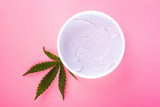The Key “Terms” of CBD
The CBD industry is rapidly growing, and as it continues to evolve and diversify, we’re seeing more terms pop up that relate to certain aspects of hemp and its variety of products. Now, for someone who is knew to the CBD world, all of this lingo can be extremely intimidating. However, the truth is that many of these popularly used terms are very simple to understand. More importantly, they can help you as a consumer or business owner who is trying to succeed in such a competitive industry.
Why Knowing Your Lingo is Crucial as a CBD Customer or Business Owner
The CBD world is still fairly new, meaning once again, it’s constantly evolving. As it evolves, a vasty array terminology is being developed in order to differentiate between different products. As of now, the CBD market is loaded with a wide range of products, meaning that knowing the right terminology is how you can determine whether or not a product can actually suit your needs. For instance, knowing the difference between different strains can have everything to do with whether or not you find that much-needed euphoria.
Additionally, if you’re a CBD business owner, you must be educated on the industry, and knowing the lingo is a huge part of that. As a business owner, you’re an authority, and customers will be asking you questions as they try to find the right products for their needs. So, understanding the basic lingo is a must.
Cannabis
CBD is a cannabinoid, and it comes from the cannabis plant. Cannabis is a genus of plants, with its two most popular members being hemp and marijuana. These plants are very similar in nature and chemical composition, but as you’ll see, they’re also very different in a number of ways.
Hemp
Hemp is the plant from which commercial CBD products are derived. This is because hemp is non-psychoactive, and so it’s legal to consume according to federal law. This is why any CBD product that you’ll find in a store comes from the hemp plant.
Marijuana
Marijuana is a sibling of hemp, and while it does contain CBD, it’s also highly psychoactive. This means that it’s not legal according to federal law, and, therefore, CBD products that are sold commercially cannot come from the marijuana plant.
CBD
CBD is the leading compound in the hemp plant, and the most widely studied in terms of its potential benefits. It’s considered a cannabinoid, and it has the potential to treat lots of different ailments ranging from mood disorders to chronic pain conditions, and basically everything in between.
THC
THC is also a cannabinoid, and it’s the psychoactive compound in marijuana that makes the plant an illegal drug due to its ability to get a person high. In hemp, there’s only about 0.3 percent THC, which is why hemp is legal. This small amount of THC is not enough to produce psychoactive effects.
Cannabinoid
Like we said, THC and CBD are cannabinoids that are unique to the cannabis plant. The cannabis plant has lots of other cannabinoids as well, including CBN and CBG. Many cannabinoids have been studied for their unique effects on the body, as some cannabinoids behave differently from THC and CBD when consumed.
Terpene
Terpenes are other plant compounds found in cannabis, and they exist in the essential oils of every plant. These compounds have been found to be uniquely beneficial as well. For instance, limonene is a terpene that has antibacterial properties. Each cannabis plant has its own unique combination of terpenes, and these terpenes also determine the flavor and aroma of a particular plant.
Strain
The strain of a plant refers to its unique chemical composition. Different strains of cannabis, therefore, produce different effects. Some strains may be better suited for pain, while others may be great at calming the mind.
Indica
Indica is one category of cannabis strains. Indica strains are known for making a person feel sleepier than energized, and they’re also associated with pain relief.
Sativa
Sativa is the other strain category, and sativa strains tend to be more uplifting and cerebral.
Hybrid
Hybrid strains contain a little bit of both indica and sativa strains in order to produce a more balanced experience.
CBD Isolate
CBD isolate is an extract that contains only CBD and no other plant compounds.
CBD Distillate
CBD distillate is also an extract containing mainly CBD, but it may also contain trace amounts of other plant compounds.
Full Spectrum
Full spectrum CBD contains every plant compound in the hemp plant, including THC.
Broad Spectrum
Broad spectrum CBD contains every plant compound in the hemp plant with the exception of THC.
CO2 Extraction
CO2 extraction is considered the gold standard in terms of extraction methods because of the way in which it preserves the chemical compounds in the plant material.
Decarboxylated
Decarboxylated hemp extract has been gently heated so that its compounds are more bioavailable. This process essentially “activates” the compounds.
Raw
Raw hemp extract has not had heat applied to it. Some believe that hemp extract in its raw form is uniquely beneficial.
Impurities
CBD’s quality mainly refers to how pure it is. Impurities found in hemp can make it less beneficial. These impurities can be pesticides, microorganisms and heavy metals. CBD extracts are tested for purity.
Strength/Concentration
Refers to the amount of hemp extract in a product’s formula compared to other ingredients. It’s measured in milligrams.
The Entourage Effect
The entourage effect refers to the effect produced when a person takes full spectrum hemp extract. Researchers believe that when every plant compound is taken together, the potential positive effects of each compound become more pronounced.
Tincture
A tincture is an oral product that combines hemp extract with a carrier oil. It’s taken under the tongue, and it comes in liquid form. Tinctures are popular because they can take effect within thirty minutes and last for a few hours.
Topical
Topicals are hemp products that are massaged into the skin. These are good for localized pain and skin-related issues.
Edible
Edibles are edible products containing hemp extract. They can provide effects for hours, but they make take up to two hours to actually take effect. Popular edibles include gummies, hard candies and other types of candies.
Vape
Vapes refer to any CBD products that are meant to be inhaled via a vaporizer. You can find hemp-infused e-liquids, pre-filled CBD e-cigarettes and more. They tend to provide more pronounced effects, and they take effect within minutes.
Carrier Oil
Most CBD products combine hemp extract with a carrier oil that’s safe to consume. This allows the formula to provide the right potency level per dose.
Know These Terms For a Better CBD Experience!
CBD is a big business, and with any big business comes a need to know all of the important lingo associated with the industry. If you’re a CBD business owner, or simply a consumer, you absolutely must know these terms, as they truly mean a lot more than you think.
Recent Posts
-
Can You Add Delta 10 THC to Your Workout Regimen?
The pursuit of an optimized lifestyle has people exploring every tool at their disposal. We meticulo …Dec 29, 2025 -
What is a Topical Entourage Effect?
The world of wellness and skincare is full of fascinating concepts, and few are as intriguing as the …Dec 26, 2025 -
2025 Cannabinoid Matchup: Delta 8 THC vs. PHC
The cannabis universe never ceases to amaze, and 2025 is proving to be a blockbuster year for cannab …Dec 22, 2025


